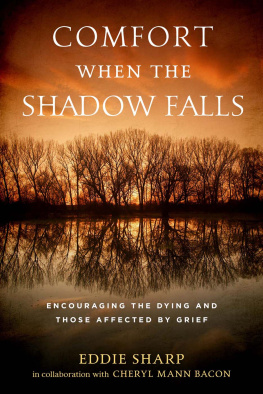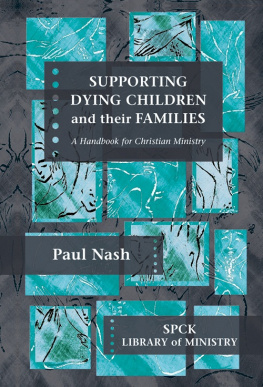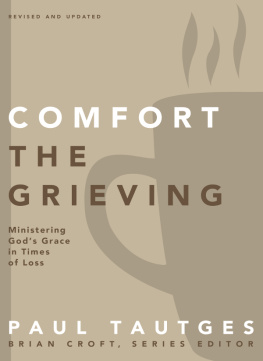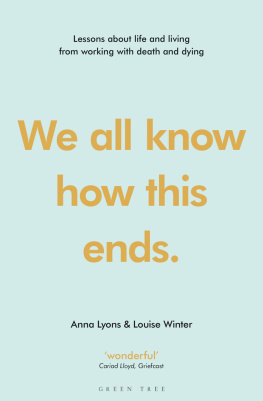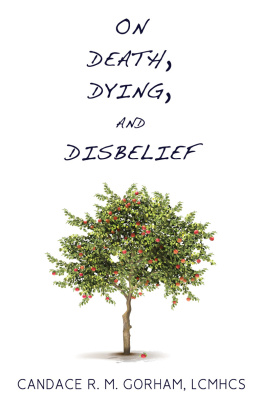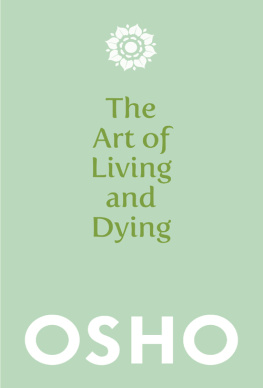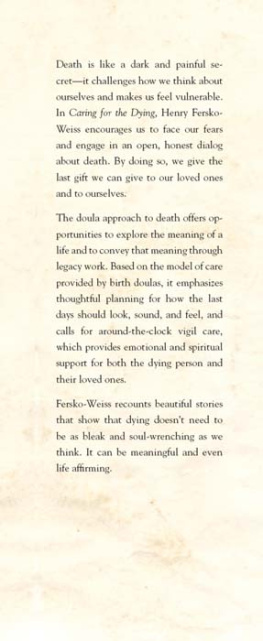I have often told people that ministry feels like living in a lightning and thunderworld. Lightning strikes at someone elses house, and the thunder shakes where Ilive. If you are a minister or a committed Christian with a gift of caring in crisis,you know what it means when the phone rings, bringing the thunder of anothers lossinto your life.
The paradox of ministry is unrelenting. Jesus came to give life, but had to die todeliver it. The blessed peacemaker must walk into conflict. Those of us who are calledto minister comfort to others must enter discomforted rooms of tears, loss, anger,stunned silence, and numbing ache. The gift God wants to give through us must begiven in the places where its neededno matter how messy or difficult.
We live in a world where people too often need the ministry of comfort. The giftof life carries within it the mar of mortality. Death is everywhere.
Through his ministering servants, the ministry of comfort puts skin on the love andpresence of God. Being in the right place, keeping silent vigil, or sharing caringwords helps keep the trial of loss from becoming an occasion of hopeless despair.
Scripture gives us an unfolding story of the nature of death and the possibilityof any hope in the presence of death. The ministry of comfort as we understand itnow has its roots in the way the biblical witness reveals what life and death areand what God is willing to do for men and women facing mortal realities. The Oldand New Testaments reveal the development of faithful reflection and hope in theface of death.
Old Testament Views of Life and Death
Adam and Eve, our old relatives, stepped out of the garden of life into a world ofsweat and thorns that would be both birthplace and graveyard for all their children.Sin brought a mortal world; life would have an end. Even given how long those firstgenerations lived, a day came for each person that was their last day, last light,last breath. Even Methuselah, who lived 969 years, knew his time was coming.
In the early chapters of Genesis, death makes itself knownin Abels murder, in generationsof natural mortal comings and goings, in the flood judgment of God. Gods promisesto Abraham grow out of Abrahams faithful life and arc into a future beyond his deathwhen he will be gathered to his people and revered as the father of the faithful.Still, Father Abraham knew the finality of death. He reminded God in Genesis 15 thatif God was going to be faithful to his word, he would have to bring Abraham a sonfrom Sarah before they died. Otherwise, his chief servant, Eliezer of Damascus, stoodto receive all of Abrahams earthly estate. The lifespan of Abraham set a definingboundary for the work of God. Isaac was finally born when Abraham was a hundred yearsold and Sarah was ninety.
So it is for all of us. What God will do with us eternally begins with what God willdo with us in this breath-boundaried life. And what the evil one hurls against usto thwart the plans of God will be worked out in the same time frame. The evil oneuses the fact and fear of mortality as one of his primary tools when he attemptsto distract and discourage people on their pilgrimages from cradle to grave.
The Old Testament gives us a wonderful unfolding of hope in the face of death. Threetexts in particular highlight the development of expectations of life: Psalm 6:5,Job 14, and Isaiah 26.
Among the dead no one proclaims your name. Who praises you from the grave? (Ps.6:5). This text represents a host of references to those who are dead and in thegrave (Hebrew: Sheol), where the dead rest in a realm of darkness away from lifeand the face of God.
In Psalm 88, the distress of the psalmist is as deep as death itself. We hear thepsalmists understanding of the nature of death from this cry for Gods attention:
L ORD , you are the God who saves me;
day and night I cry out to you.
May my prayer come before you;
turn your ear to my cry.
I am overwhelmed with troubles
and my life draws near to death.
I am counted among those who go down to the pit;
I am like one without strength.
I am set apart with the dead,
like the slain who lie in the grave,
whom you remember no more,
who are cut off from your care.
You have put me in the lowest pit,
in the darkest depths. (Ps. 88:16)
Death and the pit of the dead hold no hope in this psalm. Yet those who love Godhope against the pit. Job whispers such a hope:
Mortals, born of woman,
are of few days and full of trouble.
They spring up like flowers and wither away;
like fleeting shadows, they do not endure.
Do you fix your eye on them?
Will you bring them before you for judgment?
Who can bring what is pure from the impure?
No one!
A persons days are determined;
you have decreed the number of his months
and have set limits he cannot exceed.
So look away from him and let him alone,
till he has put in his time like a hired laborer.
At least there is hope for a tree:
If it is cut down, it will sprout again,
and its new shoots will not fail.
Its roots may grow old in the ground
and its stump die in the soil,
yet at the scent of water it will bud
and put forth shoots like a plant.
But a man dies and is laid low;
he breathes his last and is no more.
As the water of a lake dries up
or a riverbed becomes parched and dry,
so he lies down and does not rise;
till the heavens are no more, people will not awake
or be roused from their sleep.
If only you would hide me in the grave
and conceal me till your anger has passed!
If only you would set me a time
and then remember me!
If someone dies, will they live again?
All the days of my hard service
I will wait for my renewal to come.
You will call and I will answer you;
you will long for the creature your hands have made.
(Job 14:115)
Job expresses a rather fatalistic view of the human condition: we are a miserablelot, assigned to live out our days like hired laborers, dying like withering flowers,so he lies down and does not rise.
But Job has a thought that gives him hope. What if we could be like trees insteadof flowers? Trees can appear dead and done, yet sprout anew out of freshly wateredroots. What if God could hide the dead with his hand and then remember them? If Godcould remember them, he could bring them life.
Whether God will allow the dead to live again seems to hang on Gods longing forreunion with those who have lived faithfully before him. Will he call their names?Job believes the voice of God could call back the dead. This is not a well-developeddoctrine of death and life after death, but in the chasm, we can hear a faint echoof hope.
Isaiah also brings a message of greater hope when he writes to call Gods peopleto faithfulness. For those who choose to follow the living God instead of dead idols,Isaiah writes of a hope beyond the blessings of this life:
They are now dead, they live no more;
their spirits do not rise.
You punished them and brought them to ruin;
you wiped out all memory of them. (Isa. 26:14)
But your dead will live, L ORD ;
their bodies will rise
let those who dwell in the dust
wake up and shout for joy
your dew is like the dew of the morning;
the earth will give birth to her dead. (Isa. 26:19)
Certainly, God will bring judgment on those who persist in their rebellion and sin.Generations of Gods forbearance will end with destruction and captivity for thesinful. But even as the assurance of the wrath of God rings out, hope can be heard.While the enemies of the Lord face certain and complete death, the people of Godanticipate life, even liberation from the grave. They will stand, shaking off thegraves dust.

